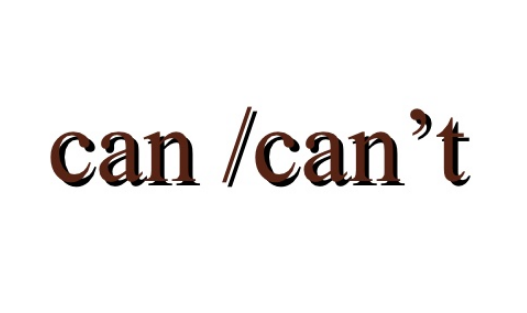學英語時,我們往往會努力學習標準發音,但其實生活里native speakers也不一定很“標準”。今天的節目就要教你聽懂美國人也常常“讀錯”的詞。
I can還是I can't?
英語中有一些單詞的拼寫和發音并不太匹配:
Spelling and pronunciation don't match
例如美國人在說can時經常會快速地發成類似“kin”的音:
Can → kin
Can't末尾“t”的發音也會弱化到幾乎沒有,聽起來就像“can”。
Can/can't
這時,可以根據situation(情景)和context(上下文)來理解對方的意思:
Adam, can you go to the party?Adam,你能去參加派對嗎?
Sure/Cool. 可以的。
表示意愿時如果說 “yes, I can”會顯得有些迫不得已,所以大家通常都說“sure”“cool”。
Adam, can you go to the party?Adam,你能去參加派對嗎?
Sorry, I can't. 抱歉,我去不了。
I'm afraid I can't. 我恐怕去不了。
在表達“不能”的時候,通常都會加上“sorry”“I'm afraid”這樣包含態度的詞。
口語中的介詞
口語中的介詞經常被快速地帶過,發音也和原本不同:
of → uh
Can you pass me a can uh(of)coke?
A bowl uh(of)cereal
A glass uh(of)milk
A lot uh(of)love
to → tuh
Give it tuh(to) me
for → fer
I got it fer(for)you
an → en
Give me en(an)apple
容易讀錯的詞
口語中這些詞發音也需要注意:
Almond: 杏仁
弱化單詞里的“l”,聽起來很像“all”
Mirror: 鏡子
聽起來就像“Mere”
Towel: 毛巾
不要發成“to-wel”或“tow-er”
"R"的發音
單詞里有很多“r”時,經常會省去某個“r”的發音:
February: 二月
美國人讀起來就像feb-yoo-air-ee。
Surprise: 驚喜
聽起來就像su(r)-prise。











